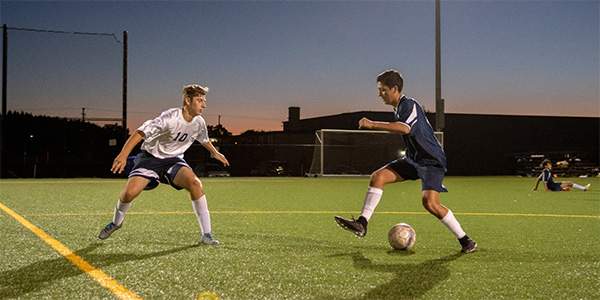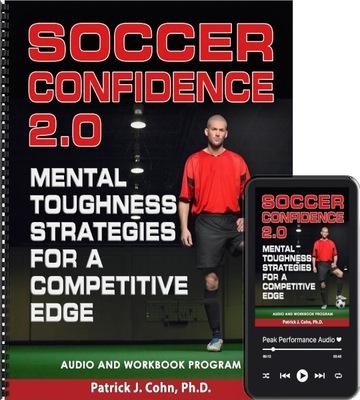
How Well do you Adjust to Playing a New Position?
During your soccer career, your role on the team will change depending on your coach and the team’s need. You may switch from attacker to defender, center-back to wing, fullback to a midfielder.
Success at a new position depends on your appraisal or your thoughts about your new role…
You may see your position change through a negative lens:
- “Coach is punishing me because I missed practice.”
- “It’s unfair that my position changes when I am better than my teammate.”
- “I’m better on offense than defense.”
- “I will never get a chance to score.”
- “I’ve played this position for years. Now I have to learn a new position.”
A negative view about a position change hurts your effectiveness on the field, the success of the team, and the relationships you have with your team and coach.
If you believe you will not be productive in a new position, you won’t. You are doomed to fail if you are not open to new opportunities.
If you believe you are being punished, you will not go all-in on learning and practicing a new position.
If you see your circumstances as unfair, you won’t be motivated to become the best player you can be.
Changing your appraisal or seeing a position change as an opportunity will foster success in your new role.
For example, if you see the position change as an opportunity to expand your skill set and value to your team, you will be motivated to work hard to develop your game.
If you see your new role as a vote of confidence in your abilities, you will have more confidence.
Learning a new position is an asset. Growing your skill is always a positive. It increases your value as a player. It is a vote of confidence from your coach. In addition, accepting a new role signals your coach and teammates that the team’s success is more important than building your statistical resume.
NWSL defender Megan Reid has proved to be a valuable and versatile player for Angel City Football Club during the 2022 season. Before playing with Angel City, Reid played for the University of Virginia. At UVA, Reid was converted to a defender after playing offense throughout high school.
REID: “I loved being a forward, but when I got to the University of Virginia, I was playing behind a lot of very skilled players. My coach, Steve Swanson, was known for converting players to different positions and he would then have a type of two-in-one player. I played outside right and left-back, and in my last two years, I played a lot of center-back and outside back. It was a difficult transition with a big learning curve, but at the end of the day, my mindset was to do whatever the team needed in the end; I loved it.”
When you are open to new opportunities, you increase your value as a player and team member.
Even though it may be uncomfortable, enjoying the challenge can put you in a position to be even better than you were in your previous role.
Building your skill set requires expanding your identity or how you see yourself as a player. You are more than a defender; you are a teammate. You are more than a striker; you are a competitor.
You will reach more of your potential as a soccer player when you become more flexible.
Related Sports Psychology Articles
- Mindset for Switching to a New Position
- How to Overcome a Slump in Soccer
- How Pro Players Build Powerful Stable Confidence
- Subscribe to The Sports Psychology Podcast on iTunes
- Subscribe to The Sports Psychology Podcast on Spotify
Download a free sports psychology report to improve your mental game!
Learn more about our one-on-one mental game coaching.
Boost Confidence in Soccer

“Soccer Confidence 2.0” 3-CD and Workbook program is the most comprehensive mental game program we’ve offered to the public. We’re virtually giving away all our mental game secrets for the incredibly low price of only $197.00 including the free bonuses!
“Soccer Confidence” is a complete brain dump of the TOP NINE mental training sessions we teach our soccer players to help them boost their mental game and improve consistency – from how to mentally prepare for games to performing under pressure to building unstoppable confidence.
